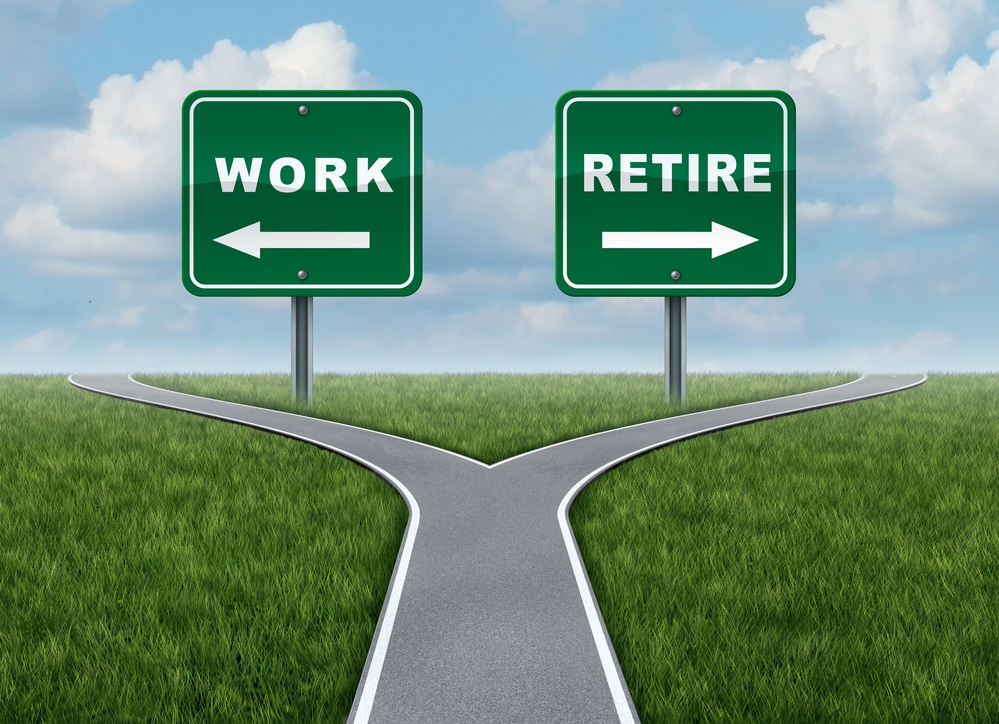Maybe raising the age of eligibility for Old Age Security from 65 to 67 wasn't such a bad idea after all? The Liberal federal government reversed a controversial decision made in 2012 by the Conservative-led feds and returned OAS eligibility to 65. But now an economic advisory council is recommending Ottawa raise the age of retirement eligibility to help stimulate Canada's workforce participation.
Even a tiny increase in the number of baby boomers in the workforce would have a big and positive impact on the economy.
“Today, just 54 percent of Canadians aged 55 to 69 are in the work force. According the council, if that figure were to rise slightly, to just 62 percent, the same level as a basket of peer countries including Sweden, New Zealand and the United States, Canadian GDP would get a one-time boost of 2.8 percent. No other single move identified by the council would deliver such big benefits.”
So the question is: How open are you to the idea of working past age 65?
Here's a neat story in The Globe & Mail's retirement reflections series on finding joy beyond conventional retirement.

This Week's Recap:
On Monday I wrote about how contributing to your RRSP is a two-step process: First you make a contribution, then you need to purchase an investment.
On Wednesday Marie started a new series called becoming a better investor and looked at managing asset allocation in multiple accounts.
And on Friday Marie explained the three phases or stages of retirement.
Weekend Reading:
An interesting look at college endowments and how tiny Houghton College achieved higher returns than the vaunted Harvard endowment by switching to a mostly low-cost passive indexing approach. Hmmmm.
An economist sees the sharp slowdown in Vancouver's housing market as a warning that Canada's housing bubble has finally burst.
Cullen Roche is exploring some of the biggest myths in investing and this article looks at the myth that indexing means average returns.
Young & Thrifty with the ultimate 5-step guide to maximizing your index ETF returns.
A fantastic Couch Potato podcast this week featuring the Millionaire Teacher Andrew Hallam.
The new HBO documentary “Becoming Warren Buffett” offers a glimpse into the man, rather than the investor:
Buffett, by his own description, was socially awkward as a kid (he attributes much of his later success to taking a Dale Carnegie public-speaking course as a young man), and the film is a portrait of a person for whom financial questions “are easy,” as Buffett says. “It’s the human problems that are the tough ones.”
Financial Uproar reveals Warren Buffett's biggest investing secret. (Saved you a click: It's Berkshire's massive insurance float.)
Jonathan Chevreau explains how to pay less income tax by taking advantage of pension income splitting.
The rules around the Canada Pension Plan survivor benefit are worth investigating before you find yourself widowed. The Globe & Mail on when you don't get the CPP survivor benefit you expect.
Alexandra Macqueen with important questions to consider when exiting a defined-benefit pension plan: Can you and should you?
Shameful: A former Edmonton mutual fund salesman unlikely to pay back any of clients' $812,000 losses.
Garry Marr explains that RRSPs are one place the creditors will never be able to grab your money.
Million Dollar Journey looks at two stock picking strategies, the Dogs of the TSX and Beating the TSX.
Another podcast, this time with Jessica Moorhouse and Desirae Odjick chatting about how to save half of your income like a pro.
Michael James on sharing restaurant and vacation costs with friends.
Discount airline upstarts NewLeaf and Flair Air are having all kinds of issues fulfilling flights prompting the Consumers' Association of Canada to issue a warning over what it calls arbitrary cancellations and alterations to flight dates and times:
“Buyers of NewLeaf tickets should be asking themselves the question, ‘Does the saving of buying cheap tickets warrant the risk of being stranded?” reads the alert.
Younger employees keep getting stereotyped as insecure and needy. Perhaps the rest of us need to reconsider why we find it normal for bosses to be jerks.
Finally, an interesting read on why UPS drivers don't turn left, and how it saves them 10 million gallons of gas a year.
Have a great weekend, everyone!